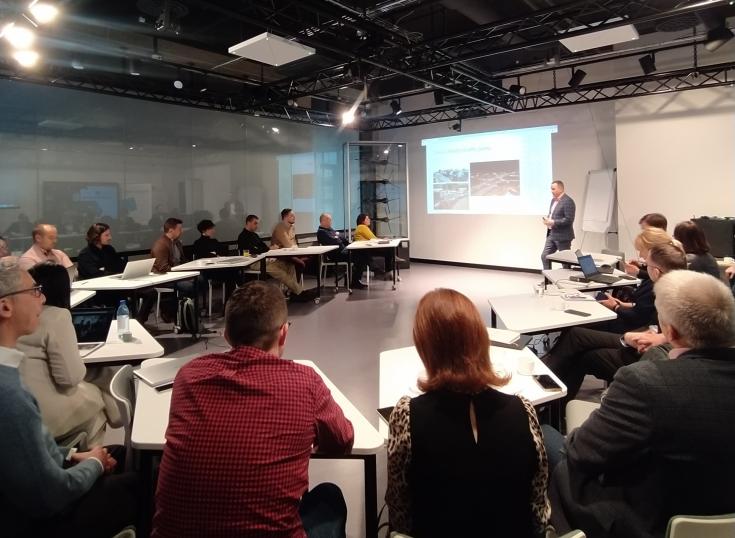Tartu: European Capital of Culture in 2024!

During the meetings many topics have been discussed with a particular focus on mobility and transport.
Partners shared strategies and experiences about public transport management to make cities become greener and provide a healty urban environment.
We all agreed that cities need a cultural transition first, which means changing people's mind and highlight benefits of public transportations. Private cars are certainly faster than buses, more comfortable and flexible in terms of routes but still they are not sustainable for the environment and a good quality of life. Policy makers and public insitutions should work to reverse this mindset. For this reason, citizens must be involved as main stakeholders
Are drones the revolution of mobility?
Drones have revolutionized various industries: photography and videography to name few, making remote areas accessible to almost everyone. But what about mobility?
Novel developments in drone technology design and development are disrupting urban mobility and the transportation of passengers and goods, and the new paradigm of urban mobility is being forged by drones.
Indeed, there are several challenges that must be overcome before complete adoption of the new paradigm, including the design, modeling, and optimization of airspace; the provision of automated services for fight planning, coordination, and flow management; drone navigation and communication; privacy issues and risk management. Solving these problems could bring promising opportunities to mitigate roadway congestion by adding a new mode of urban mobility to achieve a successful, safe, and sustainable multimodal transportation system.
On the one hand, drones undoubtedly have appeal both because of how fun they are to fly and how they have proven to be useful as commercial or industrial tools. On the other hand, there are still a lot of people who are concerned about the unregulated use of drone technology, especially as a means of surveillance. However, with these advantages, come privacy concerns and ethical considerations. Additionally, regulatory challenges and potential security risks need to be addressed.
In conclusion, drone technology offers numerous advantages. It increases efficiency, improves safety, saves costs, and expands applications in various industries. Drones also provide accessibility to remote areas for various purposee but at the same time it's crucial to address security risks and develop robust countermeasures to ensure their safe and responsible use.
